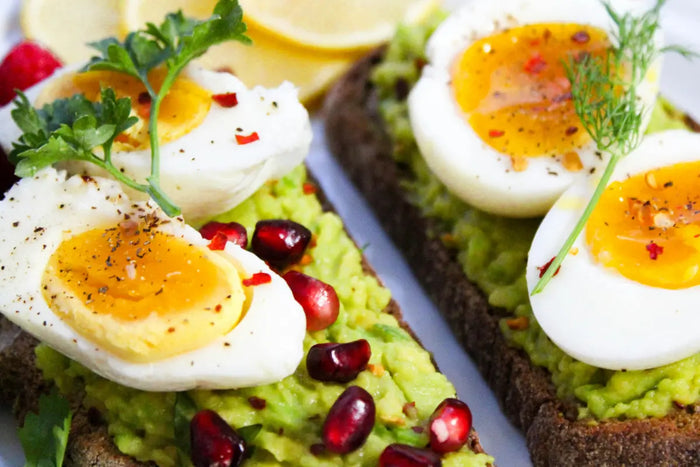Unlike Chamillionaire, when we see you rollin’, we’re definitely not hatin’.
Foam rolling is becoming more and more widely practiced. But, before incorporating foam rolling into fitness routines, beware of the pitfalls and mistakes that are so commonly made to get the most from foam rolling. Put simply, foam rolling breaks down fibrous tissue which in turn, boosts circulation and helps relieve tension and pain. This is a great recovery technique, allowing you to train again the next day.
What is a foam roller?
Firstly, a foam roller is a cylinder of foam (you could say the clue is in the name) that avid gym-goers and exercise lovers utilise to alleviate muscle soreness. Other uses include pain management, flexibility training and knot-busting.
The rollers are lightweight, portable and pretty inexpensive if you shop around. They are a great investment to make if you are frequently struggling to get up stairs after a leg day workout.
Why do people foam roll?
Foam rolling is one of the most gratifying muscle releases there is. We’ve all felt the satisfaction of sore arms and legs feeling eased and relaxed during a rolling session after a hard workout. It hurts so good, sometimes you don’t want to stop.
The explanations behind why foam rolling works feels good are hotly contested. While the benefits of it have been claimed to include everything from warming up your muscles to releasing tension to helping you to recover faster after a workout, did you ever pause in your rolling routine to ask how it actually benefits you?
Foam roller benefits
The benefits of utilising a foam roller are backed up with cold evidence. While there is conclusive scientific research on the subject, it’s limited. A study from The Sports Medicine Journal discovered that after a session of foam rolling, there was significant alleviation of the impact of exercise.
Another small study published in the Journal of Athletic Training suggested that engaging in foam rolling after you’ve worked out can help reduce delayed-onset muscle soreness, which would then in turn boost performance in later workouts.
If you still weren't convinced, there’s also evidence from a review in the International Journal of Sports Physical Therapy that foam rolling can help to promote short-term increases in the range of motion achieved by muscles and can boost flexibility. This translates to you feeling less tight and being able to work out better and more efficiently.
Why is foam rolling so effective?
One possible explanation for the benefits of foam rolling is the literal warming up of your muscles. The friction from it could help to increase the temperature of your muscles and fascia, which helps to loosen joints and tissues and increase the range of motion.
In the same way, foam rolling post-workout increases blood flow to the areas you work on, which can help to speed up recovery time and minimise delayed-onset muscle soreness.
How should I use my foam roller?
Less pain, more gain
When it comes to utilising foam rollers and rolling techniques, it’s important that when we roll pre-workout, the aim is not to try and sort out any strains or troublesome muscle knots. If we try and roll out painful spots in our muscles before we exercise, then the pain will cause the brain to respond with a protective reflex that reduces muscle performance.
Instead, save the self-inflicted, therapeutic muscle torture for post-workout rolling. But remember, even after the workout, do not roll directly on a painful area because it can increase inflammation and inhibits healing. Instead, roll a few inches away from the painful spot first and then, with large, sweeping motions, cover the entire area.
This will feel like a huge wave of relief over the effective area.
Speed matters
The speed at which you should be using your foam roller differs depending on the time of the roll. For example, when warming up our muscles pre-workout, you should use fast and dynamic rolling techniques in order to wake up our neuromuscular systems. Then after the workout, you should use slower movements in order to flush out toxins and allow our muscles to adapt and relax.
Aim for texture
When you’re in the market for your foam roller, go for a roller that can stimulate nerve endings effectively. We recommend that you pick one that is firm and has a textured surface, as the textured surface will reach deeper into the muscle’s myofascial layers than a soft, smooth roller would.
In comparison, a smooth, soft roller is the wrong tool for the job. This is because these are not effective in the stimulation of the nerve endings in the muscles. This is detrimental as this stimulation is needed to send proprioceptive messages to our brains. Therefore, smooth rollers are not as good as textured rollers for preparing our brains to control our body’s movements in our workouts.
Go against the grain
Variety is the spice of life – so keep the roll routine varied! Try out different speeds and techniques like pivoting which drives the roller deeper and involves more layers of muscle and fascia. Pivoting is done by rocking the edge or tip of the roller back and forth on the target spot, or twisting, like turning a tap on and off, on that spot. Also, most people only roll in the direction of the muscle fibres, but what is stopping us from going against the grain? Try out cross-fibre friction (i.e. rolling across your muscles) to add another aspect to the proprioceptive message sent to the brain.
Summary
Pre-workout, post-workout and recovery are hugely important – it’s not just your workout that you should be focussing on. Investing your time and energy into the right techniques and the right products is instrumental in the success of your workouts and in the reaching of your fitness goals. If you’re struggling with your recovery – why not integrate The Recovery Capsules into your routine?
References
Macgregor, L. J., Fairweather, M. M., Bennett, R. M., & Hunter, A. M. (2018). The effect of foam rolling for three consecutive days on muscular efficiency and range of motion. Sports medicine-open, 4(1), 1-9. Click here.
Pearcey, G. E., Bradbury-Squires, D. J., Kawamoto, J. E., Drinkwater, E. J., Behm, D. G., & Button, D. C. (2015). Foam rolling for delayed-onset muscle soreness and recovery of dynamic performance measures. Journal of athletic training, 50(1), 5-13. Click here.


















